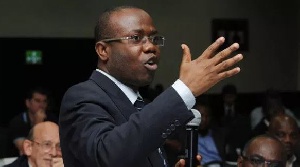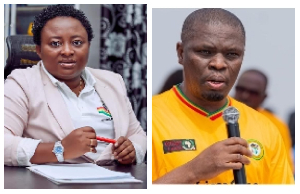
Kwesi Nyantakyi
Kwesi Nyantakyi, the former President of the Ghana Football Association (GFA), has made it clear that he has no intention of returning to football administration once his ban is lifted. His decision stems from the traumatic experiences he faced during and after the corruption scandal that led to his initial lifetime ban from all football-related activities.
In June 2018, an investigative documentary by journalist Anas Aremeyaw Anas exposed alleged corruption within Ghanaian football. The film showed Nyantakyi accepting $65,000 from an undercover reporter posing as a businessman. This shocking revelation led FIFA to impose a lifetime ban on him. However, Nyantakyi appealed the decision, and the Court of Arbitration for Sport (CAS) eventually reduced the ban to 15 years.
Despite this reduction, Nyantakyi has no desire to return to his previous role or take on any administrative position in football. In a recent interview with Kessben TV, he stated, “Although I still have a passion for football, I am not interested in becoming FA President again or taking up any other administrative role.” He expressed a deep-seated fear of undergoing another ordeal similar to what he experienced during the scandal.
Nyantakyi described the situation as life-threatening, saying, “It felt like they wanted to kill me. Not many people can survive such an ordeal.” This reflects the intense pressure and scrutiny he faced throughout the investigation and its aftermath.
During his tenure as GFA President from 2006 until his resignation in 2018, Nyantakyi achieved significant milestones for Ghanaian football. He played a crucial role in Ghana’s qualification for the FIFA World Cup in 2006, marking a historic achievement for the nation. Under his leadership, Ghana also participated in the 2010 and 2014 World Cups and celebrated the Black Satellites’ victory in the FIFA U-20 World Cup in 2009.
However, the events following the documentary have overshadowed these accomplishments. Nyantakyi’s experiences have left him disillusioned with football administration. He emphasizes that, even without the ban, he would not consider a return to the sport.






